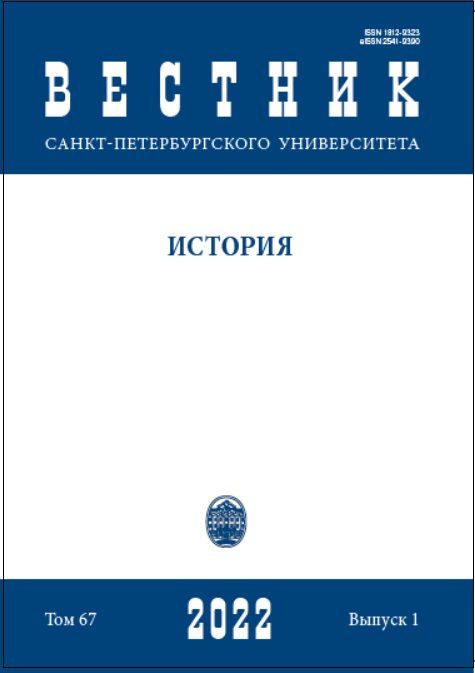Republicanisms in the territory of modern Uzbekistan
DOI:
https://doi.org/10.21638/11701/spbu02.2022.119Abstract
The article discusses the forms of republicanism that existed on the territory of Uzbekistan in different historical times and eras. The author, based on the research of historians, orientalists and memoirs of travelers, believes that the first republic arose on the territory of Uzbekistan in the 14th century in Samarkand. The founders of the first republic were Sarbadars. The first republic lasted less than one year. The second republic - Tashkent "aristocratic" possession (18th century) was founded by Yunus Khodja after a long internecine war. The Tashkent "aristocratic" republic did not last long, about 25 years. The third republic (Turkestan autonomy) arose in 1917 by "bourgeois" representatives of the local elite. Turkestan autonomy lasted 72 days and was destroyed by the Bolsheviks. The fourth republic is the Uzbek SSR (1917-1991). The Uzbek SSR was considered a socialist republic. Its essence was manifested in the union of workers, intelligentsia and farmers. The fifth republic is a democratic post-Soviet Uzbekistan. The author, on the basis of Soviet historiography, tries to show that during the 20th century, intellectuals tried to find forms of republicanism in the history of Uzbekistan. In Soviet historiography of the 40s 20th century, attempts were made to invent "republican" traditions in Soviet Central Asia. According to the author, these attempts continue to this day. The author believes that the political science of Uzbekistan does not study the problem of republicanism in Central Asia.
Keywords:
republic, Samarkand, Tashkent, Kokand, Sarbadars, bourgeois republic, socialist republic, Uzbekistan
Downloads
Downloads
Published
How to Cite
Issue
Section
License
Articles of "Vestnik of Saint Petersburg University. History" are open access distributed under the terms of the License Agreement with Saint Petersburg State University, which permits to the authors unrestricted distribution and self-archiving free of charge.





